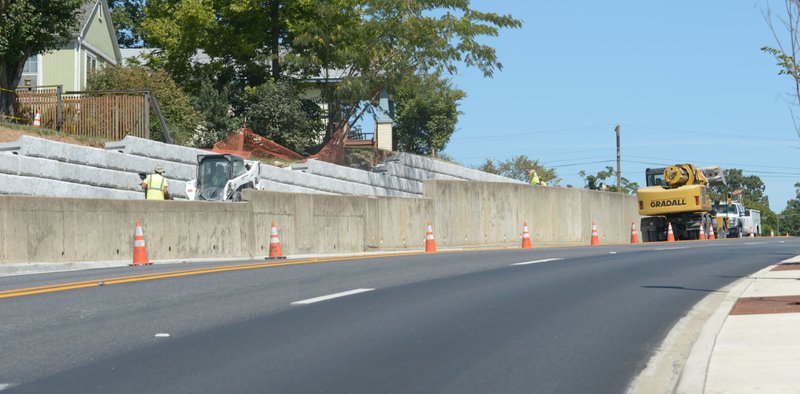FAYETTEVILLE -- A Planning Commission subcommittee thinks it may have found a way to balance the needs of potential developers who would revamp College Avenue and the neighbors who have to live next to it.
The full commission on Monday will consider a proposal to change aspects of the city's development code and create a special design district for College Avenue between Maple and North streets. A separate part of the proposal also would rezone that stretch.
The meeting
What: Fayetteville Planning Commission
When: 5:30 p.m. Monday
Where: Room 219, City Hall, 113 W. Mountain St.
Why: College Avenue rezoning
City staff and the College Avenue Rezoning Committee, made up of a sampling of planning commissioners, have proposed creating a College Avenue overlay district. The district largely would mimic the city's Downtown Design Overlay District, which was created to encourage good architectural form through additional standards aside from what the zoning requires.
For example, staff has recommended rezoning parts of College Avenue to an urban thoroughfare zoning district, which has a maximum building height of seven stories. However, under the overlay district's requirements, residential buildings would be limited to three stories. The standards in the overlay district outweigh the zoning requirements.
Most of the rezoning would place that segment of College Avenue under either an urban thoroughfare or a community services designation. Community services has a five-story building height maximum, but again, the overlay requirements would supersede the zoning regulations.
Rezoning committee members on Thursday saw the approach as a compromise. City staff first proposed rezoning College Avenue in the spring. Dozens of residents who live in historic areas near the stretch came to City Hall in droves to protest the possibility of tall, student-occupied apartments that could loom over their homes.
The proposal has since gone through the full Planning Commission, the City Council, a City Council subcommittee and back to the Planning Commission's subcommittee. The full Planning Commission will bring the issue back up during Monday's meeting, and if approved, would forward it to the City Council.
Public notice signs will go back up with letters sent to neighbors informing them of the proposed changes.
"Hopefully they'll see, both the council and the neighbors, the work that has been done in trying to continue to be progressive through this zone but also keep the neighbors in mind," Planning Commissioner Matt Johnson said.
The proposal also would change the city's code measuring building height from feet to stories. That change would apply across the board, but other amendments, such as a minimum ground floor story height of 12 feet and residential buildings not being able to exceed three stories, would only apply to College Avenue, Planning Director Andrew Garner said.
"We were starting to hear some minor rumblings from the development community that this was a citywide text amendment that would have major implications without involving the full public," he said. "I think that was a fair comment."
City staff brought up the idea of rezoning College Avenue in the first place because many of its buildings are out of compliance with the current code. Curb-cuts riddle the corridor and many parking lots don't connect with one another, increasing the potential for traffic accidents.
The city began a revitalization effort between Maple and North streets last year. Work on the east side to widen the sidewalk, add lighting and replace the curbs and gutters has wrapped up. The same is being done to the west side and should finish by the end of this year.
Commissioner Alli Quinlan, who has chaired the subcommittee, said if the proposal proves successful the overlay district eventually could stretch up College Avenue to Joyce Boulevard. The idea was to come up with something that could function beyond Maple and North streets and appease developers and neighbors, she said.
"They have totally opposing needs, so trying to find a code that really balances both of those that really benefits the city and forwards our city goals has been a challenge," Quinlan said. "But I do think this is a good solution."
NW News on 10/20/2017

